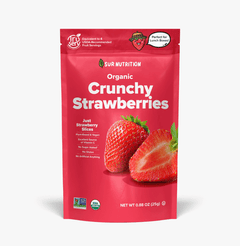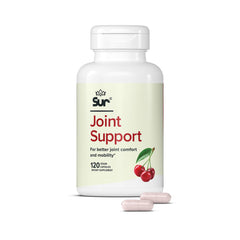Most people are aware of the benefits of fiber supplements in managing healthy digestion, a diverse gut microbiome, stable cholesterol, and overall wellbeing. Some common products you'll likely encounter include psyllium, inulin, methylcellulose, flaxseed, and beta glucan, the superstar ingredient in our ever-popular Nutrim Oat Beta Glucan powder.
We recognize that with so many products and options on the market, it can be tricky to know which supplements are better, represent value for money, and have additional health-positive benefits. This concise guide covers all you need to know about the pros and cons of fiber supplements and why our Nutrim Powder Oats, harnessing the power of oat bran as one of the best sources of beta glucan, remains a top contender!
Common Types of Fiber Supplements and Fiber-Enriched Products
Fiber supplements contain soluble or insoluble fibers. Soluble fiber supplements are ideal because they can better feed friendly gut bacteria, contributing to a healthy, well-balanced gut microbiome that influences everything from cholesterol to immunity.
Psyllium Husk
Psyllium is a soluble fiber extracted from seeds, usually sold as a capsule, powder, or granule. It’s also used as a fiber supplement and laxative. Some breakfast cereals are fortified with psyllium.
Inulin
This fiber supplement is made from starches found in vegetables, fruits, and herbs like asparagus, onions, and wheat. It’s usually sold as a powder and is converted by the gut into short-chain fatty acids. However, there are concerns about the side effects, which may be more pronounced than other forms of fiber.
Methylcellulose
A type of fiber that is synthetically produced and often sold as a constipation treatment. Most methylcellulose products are capsules or tablets and work as a bulk-forming fiber laxative.
Flaxseed
This plant-based fiber can be added to foods and smoothies in its original form, sold as small oil seeds, or ground down into a powder. Although flaxseeds have varied uses, they contain insoluble fiber that can help to relieve constipation.
Oat Beta Glucan
Beta glucan is a soluble fiber readily available from grains. It has multiple bioactive properties that help with digestion, heart health, and managing healthy blood sugar levels. Our Nutrim Oat Beta Glucan Powder contains beta glucan in a pre-measured daily dosage in a small one-scoop serving.
Potential Side Effects Associated With Fiber Supplements Like Psyllium Husk
Fiber remains vital to a balanced diet, but some supplements may be less suited to people with sensitive guts or pre-existing digestive conditions. Psyllium husk is a good example, as it is a generally well-regarded source of fiber. However, it can also trigger allergies and exacerbate gut issues, causing nausea, diarrhea, bloating, and stomach pain.
Side effects are rare but can be serious, and certain fiber supplements should only be taken with medical supervision if you have any known problems, such as inflammatory bowel conditions. It’s also worth noting that if you have been deficient in fiber for an extended period, any supplement could disturb your digestion. This means it is advisable to start with a small dose and increase it gradually to give your body time to adapt.
Comparing Psyllium Husk and Beta Glucan Fiber Supplements
Both psyllium and beta glucan are soluble fibers and carry some health benefits, but there are key contrasts. The first is that beta glucan is extracted from oats and barley, whereas psyllium husk is derived from seeds of a plant called ‘Plantago ovata.’ Other differences are as follows:
-
The bacteria in your gut can easily ferment beta glucan but not psyllium, which could mean the impacts of these supplements on your gut health vary.
-
Psyllium has a higher water absorption capacity, turning water into a gel. This can mean it works well at managing better regulation but can also cause issues around dehydration and constipation.
-
If you are taking fiber supplements to manage healthy cholesterol labels, beta glucan is preferable as it can achieve similar benefits in far smaller dosages.
Ultimately, the right fiber supplements may depend on your general health and any concerns you'd like to proactively address, such as cholesterol, digestion, or heart health. However, we hope this information has given you a clearer idea about the types of fiber supplements, their pros and cons, and why we advocate for beta glucan as an all-around health-positive addition to your diet, ensuring your fiber supplement provides the widest possible benefits.




